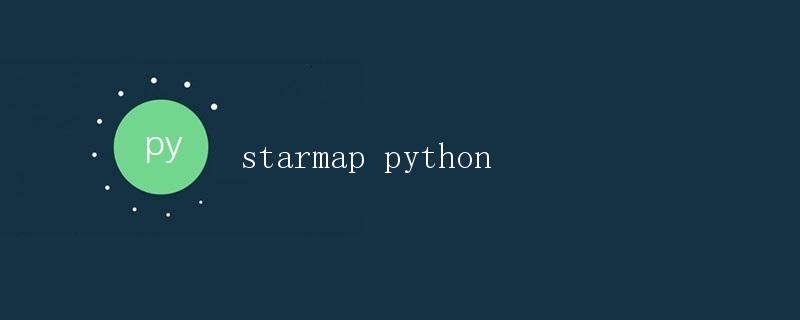Python starmap

在 Python 中,starmap 是 itertools 模块中的一个函数,它提供了一种使用函数和可迭代对象作为参数的方式。在本文中,我们将详细讨论 starmap 函数的用法、示例代码以及一些实用技巧。
1. starmap 函数的基本用法
starmap 函数的定义如下:
itertools.starmap(function, iterable)
其中,function 是一个函数对象,iterable 是一个可迭代对象。starmap 函数会将 function(*args) 应用到 iterable 中的每个元组上,返回结果组成的迭代器。
下面是一个简单的示例,展示了如何使用 starmap 函数求取多个数字的平方和:
import itertools
def square_sum(a, b):
return a**2 + b**2
numbers = [(1, 2), (3, 4), (5, 6)]
result = itertools.starmap(square_sum, numbers)
for r in result:
print(r)
运行以上代码,将输出:
5
25
61
2. starmap 函数的高级用法
除了简单的元组操作外,starmap 函数还可以用于更复杂的场景。例如,我们可以结合 lambda 表达式和 starmap 函数来实现一些特定的计算逻辑。
下面是一个示例,展示了如何使用 starmap 函数计算多个数字的加权和,其中每个数字具有不同的权重:
import itertools
weights = [0.5, 0.8, 1.2]
numbers = [(1, 2), (3, 4), (5, 6)]
result = itertools.starmap(lambda a, b: a*weights[0] + b*weights[1], numbers)
for r in result:
print(r)
运行以上代码,将输出:
2.2
5.9
9.2
3. starmap 函数的实用技巧
3.1 使用 multiple assignment 解构元组
在 starmap 函数中,我们可以直接使用 multiple assignment 解构元组,使得代码更加简洁和易读。
下面是一个示例,展示了如何利用 multiple assignment 解构元组来计算多个数值的平方和:
import itertools
def square_sum(a, b):
return a**2 + b**2
numbers = [(1, 2), (3, 4), (5, 6)]
result = itertools.starmap(square_sum, numbers)
for a, b in numbers:
print(f"Square sum of {a} and {b}: {next(result)}")
运行以上代码,将输出:
Square sum of 1 and 2: 5
Square sum of 3 and 4: 25
Square sum of 5 and 6: 61
3.2 结合 zip 函数实现多个可迭代对象的同时迭代
在实际应用中,我们有时需要同时迭代多个可迭代对象,并将它们的元素传递给 starmap 函数进行处理。这时,可以结合使用 zip 函数和 starmap 函数来实现这一目的。
下面是一个示例,展示了如何通过结合 zip 函数和 starmap 函数计算多个数值的乘积和:
import itertools
def product_sum(a, b, c):
return a*b + b*c + c*a
numbers_1 = [1, 2, 3]
numbers_2 = [4, 5, 6]
numbers_3 = [7, 8, 9]
result = itertools.starmap(product_sum, zip(numbers_1, numbers_2, numbers_3))
for r in result:
print(r)
运行以上代码,将输出:
39
70
117
结论
本文详细介绍了 starmap 函数在 Python 中的用法、示例代码以及一些实用技巧。通过灵活运用 starmap 函数,我们可以更加高效地处理多个元组数据,并实现更加复杂的计算逻辑。
 极客教程
极客教程